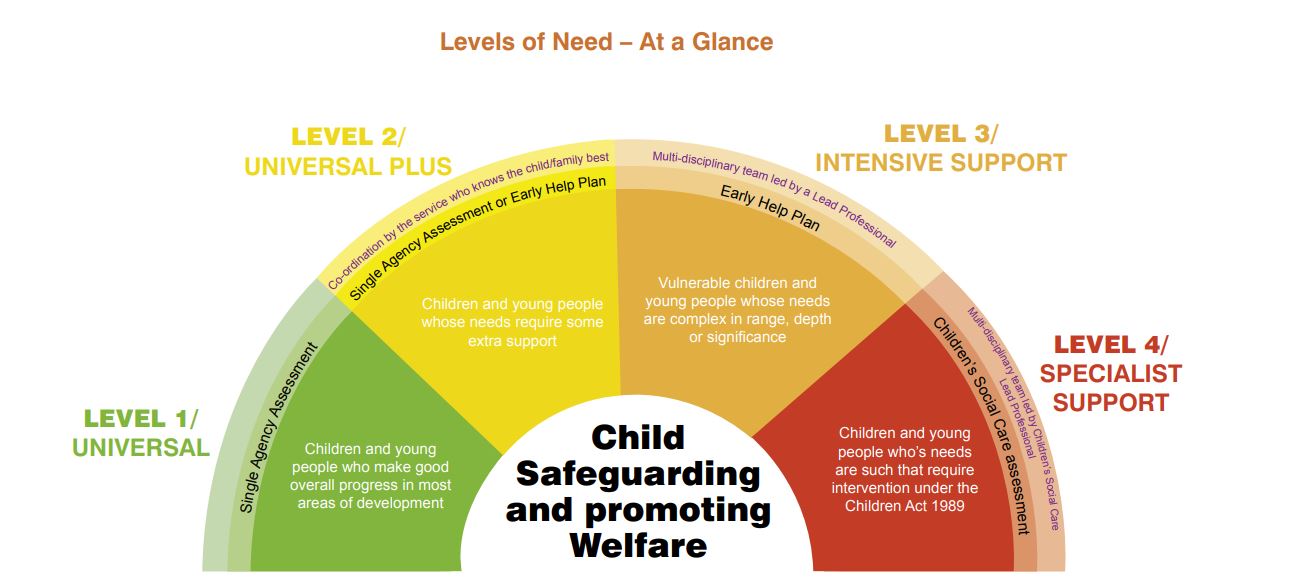Latest News:
Safeguarding is at the forefront of all that we do at PCHS&C
PCHS&C fully recognises the contribution we can make to protect children from harm and to support and promote the welfare of all children who are pupils at our school.
PCHS&C is committed to safeguarding and promoting the physical, mental and emotional welfare of every pupil. We implement a whole-school preventative approach to managing safeguarding concerns, ensuring that the wellbeing of pupils is at the forefront of all action taken. We recognise that no single professional can have a full picture of a child’s needs and circumstances. If children and families are to receive the right help at the right time, everyone who comes into contact with them has a role to play in identifying concerns, sharing information and taking prompt action
All aspects of wellbeing, including emotional health of our pupils is monitored by all staff. Everyone has their part to play at PCHS&C in promoting well-being and positive mental health within our community. There are particular staff who are well placed to provide support and guidance within their specific role and responsibilities.
Designated
Safeguarding Lead
Claire Endersby
Assistant Headteacher
Deputy Designated
Safeguarding Lead
Alison McConville
Family Liaison Officer
Deputy Designated
Safeguarding Lead
Joanne Chatburn
Deputy Headteacher
Deputy Designated
Safeguarding Lead
Debra Grogan
Headteacher
- Designated Teacher for Children who are Looked After (and previously looked after) : Claire Endersby
- Designated Senior Mental Health Lead: Alison McConville
- Online Safety Lead : Claire Endersby (acting)
- SENDCO: Stephanie Curtis
For our pupils, well-being, positive mental health and promoting the welfare of all our young people falls within our wider safeguarding culture and any issues should be initially discussed with the Designated Safeguarding Lead (DSL) or Deputy DSLs. Within the staff team we have Mental Health First Aiders and a number of staff have trained as Mental Health Champions.
Whisper Button
Using the Whisper button is a good way to make us aware of issues before they escalate and that goes a long way in helping us maintain a safe environment for your child. This reporting service allows anyone to send a message confidentially where it will be received and dealt with appropriately. This message can be sent anonymously but you can also leave your details if you need a direct response. The whisper button can be found at the bottom right hand corner of our website and looks like this:
![]()
PCHS&C Early Help Offer
PCHS&C are committed to providing support to families as soon as the need emerges, at any point in a child’s life. Any pupil or family may benefit from early help and all staff are alert to the potential need. Staff at PCHS&C recognise that any professional can provide early help.
The Early Help offer at our school & college includes:
Alison McConville, Family Liaison Officer
Alison has worked in mainstream and special education as well as children’s social care for the last 29 years in various roles. She has been a Family Liaison Officer/Deputy DSL for the last 21 years, 15 years in a mainstream primary school and 6 years at PCHS&C. She is passionate about supporting parents/carers and their families. Alison is a Thrive Practitioner with a focus on family interventions as well as a Mental Health First Aider. She is trained in Drawing and Talking and Advanced Drawing and Talking. Alison has also completed Early help training, Graded Care profiling, Designated Safeguarding Lead and Emotionally socially Based School Avoidance (EBSA) .
Special Needs School Nursing Team
The school nurses are available to support parents and young people at Children in Need / ‘best interest’ meetings. The nurses promote regular health messages and where necessary support families in making and accessing appointments with medical professionals. In addition, advice is available on a range of health needs such as continence, dental health, sexual health, smoking cessation and healthy eating.
HLTA for Neurodiversity
Carlie Gladstone is a HLTA for neurodiversity with responsibility for supporting those young people with autism and working across the whole school and college. She provides CYGNET training courses for parents, delivers small intervention groups and liaises with parents and professionals as appropriate. She is also trained as a Thrive practitioner.
Senior Learning Mentors
Karen Butcher & Amy Phillips will work in partnership with school colleagues to provide a personalised, whole family focused response to meeting the needs of identified children, young people and families. They will undertake direct work to overcome particular obstacles to learning. This person will advise and support staff in specialist areas within the school, support behaviour and co-ordinate interventions. They will provide extra support to pupils through knowledge of a range of activities and opportunities available to them e.g. Zones of Regulation, THRIVE Programme, Boxall Profile, Back pocketing, Cool Kids Cool Minds, Hidden Chimp, Text ED, Worry Box etc.
Additional THRIVE Practioners
The Headteacher, Assistant Headteacher and PSHE Lead are all trained THRIVE practitioners.
DSL & Deputy DSLs
Where consent has been gained, the DSL and Deputy DSLs take the lead on Early Help assessments. This may include liaising with and signposting to other agencies. The local early help process will be followed to help provide the right, effective support at the right time. Generally, they will lead on TAF meetings and will follow all local safeguarding processes. Where Early Help has not been successful in reducing risk and meeting unmet needs, they will refer to Children’s Social Care.
Working Well with Children and Families in Lancashire Part 1 & 2
Working Well with Children and Families in Lancashire Part 3

Prevent Strategy – Parent Information
What is the Prevent strategy?
Prevent is a government strategy designed to stop people becoming terrorists or supporting terrorist or extremist causes. The Prevent strategy covers all types of terrorism and extremism, including the extreme right wing, violent Islamist groups and other causes.
How does the Prevent strategy apply to schools?
From July 2015 all schools (as well as other organisations) have a duty to safeguard children from radicalisation and extremism. This means we have a responsibility to protect children from extremist and violent views the same way we protect them from drugs or gang violence. Importantly, we can provide a safe place for pupils to discuss these issues so they better understand how to protect themselves.
What does this mean in practice?
Many of the things we already do in school to help children become positive, happy members of society also contribute to the Prevent strategy. These include:
- Exploring other cultures and religions and promoting diversity
- Challenging prejudices and racist comments
- Developing critical thinking skills and a strong, positive self -identity
- Promoting the spiritual, moral, social and cultural development of pupils, as well as British values such as democracy
We will also protect children from the risk of radicalisation, for example by using filters on the internet to make sure they can’t access extremist and terrorist material, or by vetting visitors who come into schools. Different schools will carry out the Prevent duty in different ways, depending on the age of the children and the needs of the community.
Frequently Asked Questions
How does Prevent relate to British values?
Schools have been required to promote British values since 2014, and this will continue to be part of our response to the Prevent strategy. British values include:
- Democracy
- The rule of law
- Individual liberty and mutual respect
- Tolerance of different faiths and beliefs
Isn’t my child too young to learn about extremism?
The Prevent strategy is not just about discussing extremism itself, which many not be appropriate for younger children. It is also about teaching children values such as tolerance and mutual respect.
Is extremism really a risk in our area?
Extremism can take many forms, including political, religious and misogynistic and can be a bigger threat in some areas than others. It is important to give children the skills to protect themselves from any extremist views they may encounter.
KEY TERMS
Extremism – vocal or active opposition to fundamental British values such as democracy, the rule of law and tolerance of different faiths and beliefs.
Ideology – a set of beliefs
Terrorism – a violent action against people or property, designed to create fear and advance a political, religious or ideological cause.
Radicalisation – the process by which a person comes to support extremism and terrorism.
Where to go for more information?
If you have any questions or concerns about the Prevent strategy and what it means for your child please do not hesitate to contact the school. You will find more information about spiritual, moral, social and cultural development and British values on our website.
Operation Encompass
 In conjunction with Lancashire Police, PCHS&C is involved in a national initiative called “Operation Encompass”. The purpose of Operation Encompass is to safeguard and support children and young people who have been involved in, heard or witnessed a domestic abuse incident. Following an incident, children may arrive at school distressed, upset, worried and unprepared. Operation Encompass aims to ensure that appropriate school staff are made aware early enough to help and support children and young people in a way that means they feel safe and included. This is a valuable initiative that means we can help and support students and their families within our school when they need us most. You can find out more information by visiting the Operation Encompass Website or by contacting any of our safeguarding team at school.
In conjunction with Lancashire Police, PCHS&C is involved in a national initiative called “Operation Encompass”. The purpose of Operation Encompass is to safeguard and support children and young people who have been involved in, heard or witnessed a domestic abuse incident. Following an incident, children may arrive at school distressed, upset, worried and unprepared. Operation Encompass aims to ensure that appropriate school staff are made aware early enough to help and support children and young people in a way that means they feel safe and included. This is a valuable initiative that means we can help and support students and their families within our school when they need us most. You can find out more information by visiting the Operation Encompass Website or by contacting any of our safeguarding team at school.
CONTACT US
CONTACT US
Pendle Community High School & College
Pendle Vale Campus, Oxford Road, Nelson, Lancashire, BB9 8LF
Tel: 01282 682260
Headteacher: Debra Grogan
Chair of Governors: Trevor Ashton (Address c/o above)
Receptionist: Sophie McCamon
E-mail: smccamon@pchs.lancs.sch.uk
SENDCO: Stephanie Curtis
Email: scurtis@pchs.lancs.sch.uk
CONNECT WITH US
Paper copies of the information on our website can be requested via email.

